Donald Johanson Quotes & Sayings (Page 2)
Donald Johanson quotes and sayings page 2 (scientist). Here's quote # 11 through 20 out of the 38 we have.
“When the first fossils began to be found in eastern Africa, in the late 1950s, I thought, what a wonderful marriage this was, biology and anthropology. I was around 16 years old when I made this particular choice of academic pursuit.”
“Journalists often ask me when I go to the field, 'What do you expect to find?' And my answer always is, 'The unexpected,' because we're just looking at the tip of the iceberg; we've just scratched the surface.”
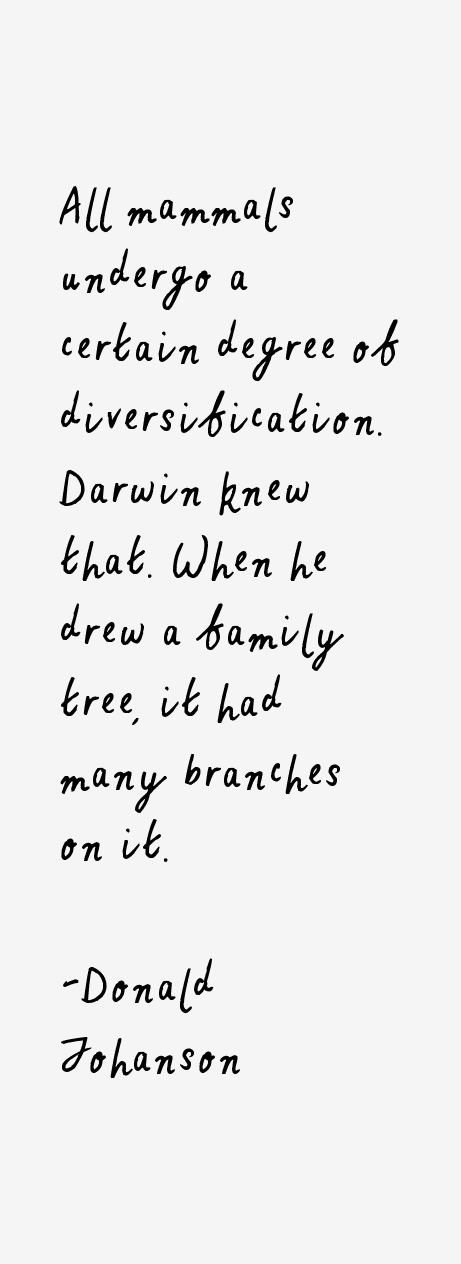
“All mammals undergo a certain degree of diversification. Darwin knew that. When he drew a family tree, it had many branches on it.”

“I was very intellectually oriented, very early on.”
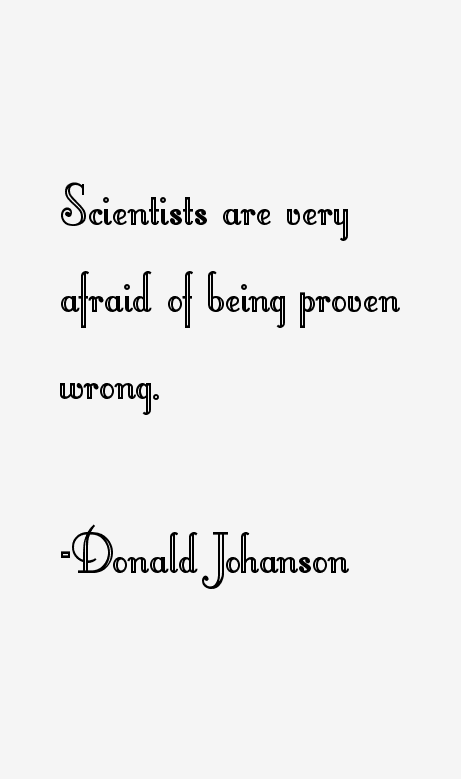
“Scientists are very afraid of being proven wrong.”

“I think that many of my ideas are correct, but I'll bet you, before my death other discoveries will be made that will prompt me to alter various ideas I have about human evolution.”
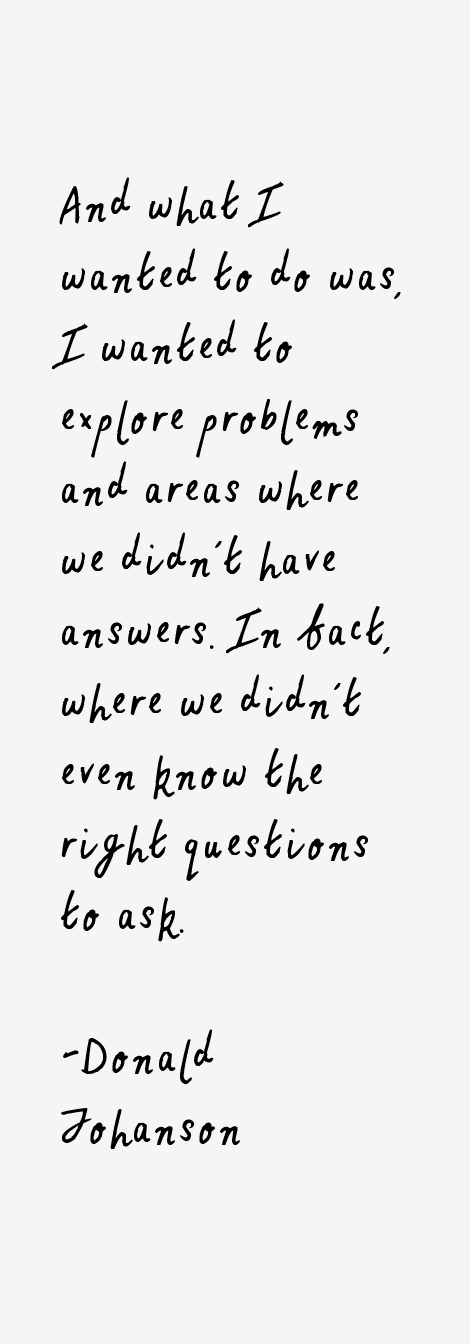
“And what I wanted to do was, I wanted to explore problems and areas where we didn't have answers. In fact, where we didn't even know the right questions to ask.”

“As an undergraduate, I had an opportunity to go on a number of archeological digs. So I had experience excavating, digging up remains of ancient Indian villages in the Midwest and in the Southwest.”
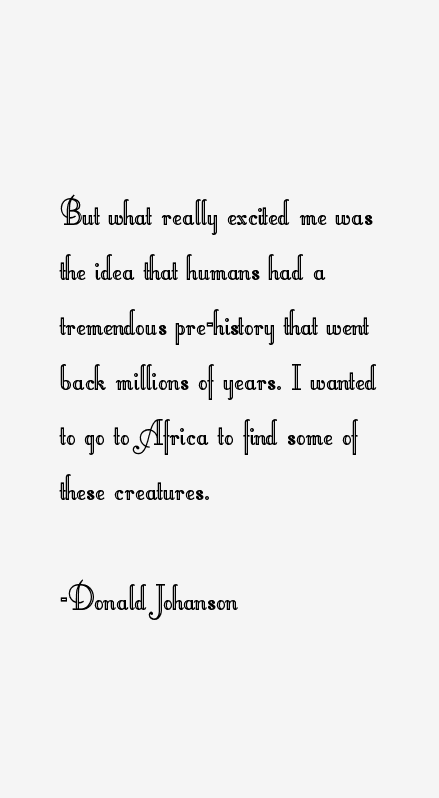
“But what really excited me was the idea that humans had a tremendous pre-history that went back millions of years. I wanted to go to Africa to find some of these creatures.”
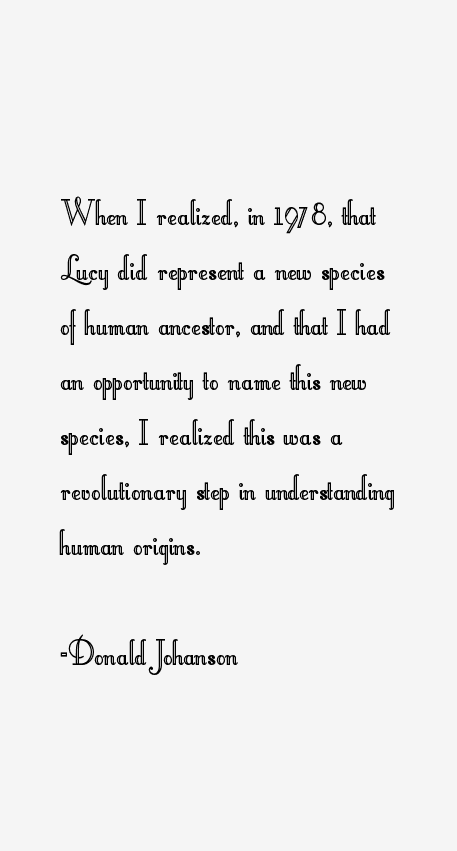
“When I realized, in 1978, that Lucy did represent a new species of human ancestor, and that I had an opportunity to name this new species, I realized this was a revolutionary step in understanding human origins.”
Donald Johanson Quotes Rating
No Ratings Yet
Leave A Comment
























